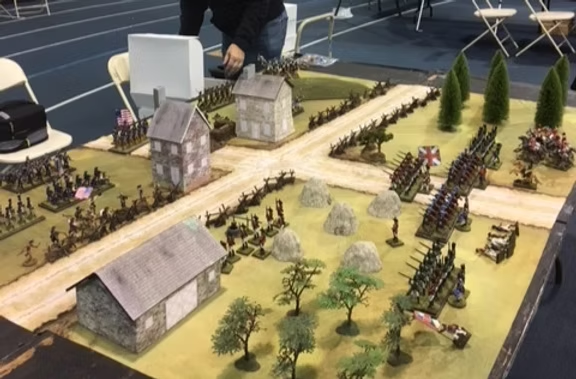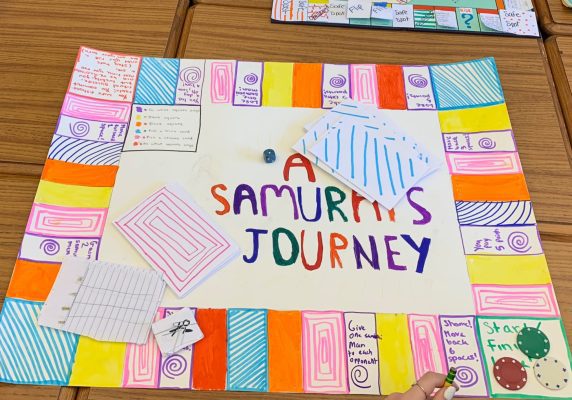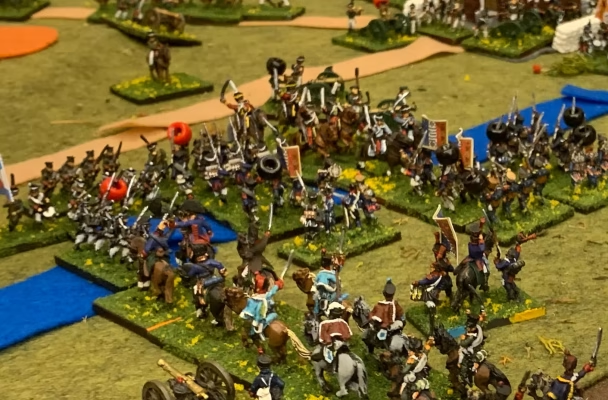About Next Gen
Whether you’re a school, professional institution, club, or business, game based learning will help you to:
- Develop leadership skills
- Foster camaraderie and teamwork
- Build engagement and excitement
- Enhance critical thinking, problem solving, and real world solutions
- A lens for diversity, equity, and inclusion work
Who We Work With
- Universities
- Secondary Schools
- Libraries
- Businesses and Other Professional Organizations
What We Offer
- Game Days (miniatures, role playing, simulations; read more below)
- Game Based Professional Development
- Interactive Seminars
- Teacher Support
Our History, Our Present, Our Future
HMGS Next Gen, Inc., was founded in August of 2020 as an offshoot of the Historical Miniatures Gaming Society, Inc. Our goal is to seed and fund the growth of game clubs in the United States and around the globe. By facilitating game-design thinking along with game-based professional development, HMGS Next Gen will grow the hobby and the critical thinking that it fosters.
Currently, HMGS Next Gen is working with libraries, public and private universities, secondary schools, and corporate organizations. We are composed of facilitators who have seen, first hand, the value of games as a learning tool. Games provide participants with an opportunity to explore diversity, teamwork and camaraderie. This is done through analytical thinking, leadership and stress management.
The key developmental points carry over to real life skills that are used on a daily basis. To that end, HMGS Next Gen will provide game-based services to support the development of our ever burgeoning client base. These services include both supplies and grant funding for new and growing game clubs. Supplies can include items such as paints, miniatures, rules, board games, roleplaying guides, and other components as needed. Monetary grants can also be provided for a club upon receipt of a simple grant application.
Another game-based service and aspect of the HMGS Next Gen mission is the facilitation of “game days” for all levels of clubs. Given that not every environment has a seasoned or professional gamer, we provide the service by partnering with experienced facilitators. This allows us to access already prepared facilitators who have the supplies and means necessary to run a fantastic and worthwhile event. HMGS Next Gen has run games on topics such as the Roman Empire, the American Revolution, and World War Two, and has the ability to expand this offering to almost every point in history.
When looking at corporate organizations, HMGS Next Gen can also provide professional workshops and training sessions on topics ranging from diversity training to decisive decision making, depending on the needs of the client. Using games as a teaching tool gives all participants an opportunity to connect, work together, seek advice, and grow.
Finally, HMGS Next Gen plans to hold a yearly conference designed to bring together clients, professional speakers, educators, game designers, and others for the express purpose of gaming and game theory exercises to explore their benefits in the classroom and boardroom.

What are Historical Simulations?
Historical simulations emulate many elements of role playing in that players will embody a particular character of their design. However, historical simulations thrust players into real life events. Thus, they will need to create caricatures that stay true to the person’s life, with an amount of creative license to make the part their own. From there, a story teller leads the players through the historical event, using different mechanisms to allow the players to interact with their environment. They might be involved in the trial of King Louis XVI, or the Reconstruction debate, or even the war room during the Cuban Missile Crisis.
What is Role Playing?
While storytelling dates back to the origins of our species, role playing was popularized in the 1970s with the advent of Dungeons and Dragons. In role play games, players design a character, complete with different skills, powers, knowledge, etc., and embody that character in a fictional world. In addition to a player base, role play games need a storyteller or “dungeon master”, who plays the role of game designer and facilitator. While many, many modules exist to support storytellers, many choose to design their own narratives, with the help of their players. Role play games can exist within many settings, from cyberpunk, to Victorian sci-fi, to fantasy realms, to horror themes, and dystopian alternate historical venues.


What is Miniature Wargaming?
One could argue that miniature wargaming has existed for hundreds of years (chess is, on some level, a miniature wargame), but it started to gain more widespread attraction in the early 1900s. A game pits two players or teams against one another. Their armies are comprised of plastic, pewter, or resin troops scaling from as small as 2mm to as tall as 54mm. Using different mechanisms, units are pushed around a three dimensional table, with dice being used to determine combat, morale, and command rolls. There is an artistic flair to the games as well, given that the owner will need to paint the miniatures according to the historical period, complete with all the trimmings, as well as design a good looking, accurate battlefield.
Meet HMGS, Inc.
